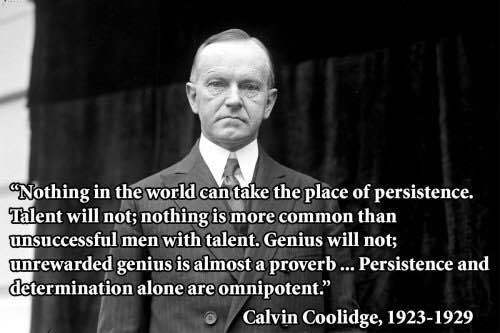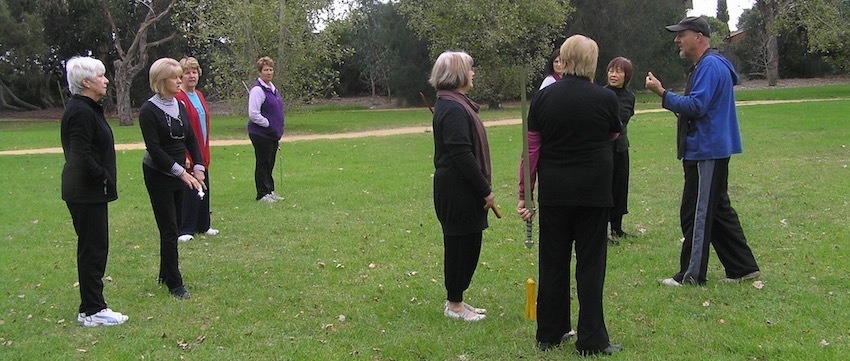
To Educate or Entertain
To Educate or Entertain?
When ever I plan to teach a tai chi class, there is always a question to be answered – am I planning to teach them something or just to entertain them?This is not to divide the options in a hierarchical way or to be condescending to any degree but it’s more about context. What’s appropriate and what will create the best result?For a one-off tai chi introduction class or random workshop, it’s essential to make the experience entertaining for those who are looking for a taste of tai chi. Sometimes I think of it almost as a sales pitch although I genuinely have no desire to convert. It really is about creating an enjoyable activity for people and presenting the complex art of tai chi in an easily digestible format. Rather than filling the session with drills and gritty theory, it’s important to keep them stimulated with a variety of easy to follow movements and interesting discoveries. I sometimes feel more like an entertainer putting on a show with audience participation rather than a teacher. It’s fun and the feedback is nearly always encouraging.On the other hand, when it comes to teaching a class of intermediate or senior students, my agenda changes considerably. While having fun is always a priority, the intention shifts from stimulation to development. This is nearly always a more difficult assignment. Not because the content of the class is more challenging to teach but because student have such diverse reactions to absorbing new information.It’s an easy demarcation between the curious beginner and the regular student. The former requires a mostly entertaining session and the latter should focus on building skills.However the lines get blurred when a regular student chooses to stop ‘eating bitter’ and prefers to be entertained in class.

If a student fails to practice between class sessions, then the teaching has been reduced to a form of entertainment. Entertainment is a faculty of the intellect. Actual learning requires the body to forge a habit.Often a student will practice quite a lot and become comfortable with their progress. So comfortable that they may feel they’ve reached a level that only needs to be maintained rather than improved upon. They stop practicing either because they feel that they’re now good enough, they’ve learned enough or they lose interest in learning more. This is a hurdle that most students encounter. A hurdle they will either scale or stumble at.This stage of arrested development typically leaves the student with a brand of muscle memory that over time becomes rigid, flawed and so chronically external that the only thing genuinely tai chi about what they’re practicing is the wording on their t-shirt.
In most instances this long term student who unwittingly traded on-going development for comfortable repetitions, remains blissfully unaware of the opportunities missed.They have traded learning for entertainment. A good teacher will recognise this kind of student and reluctantly keep them entertained while investing their genuine teaching efforts on those who have some vision of the task ahead or trust the teacher enough to just plod on.Prerequisites for real learning are often difficult to comprehend. The student must be prepared to reinvent. Progress is through a succession of levels. When you reach the top of one level you are at the bottom of another. You almost have to begin again. Stop and perform maintenance. Tighten up all the nuts and bolts.It’s like climbing a hill. When you reach the summit you realise that it’s actually just a low peak and there’s another higher peak to climb. When you scale that section a still taller peak comes into view. Maybe this third peak has no visible path, so you have to go back down the second peak and find another way up. Tai chi development is like that. 2 steps forward, one back. If you don’t take stock you will plant your flag at a false summit. It may be a mile below the actual summit. Most students know that there are more hills to climb but few are prepared to go back down to find the better path up. Those students unwittingly sign up to be entertained for ever on a lower ridge.Analogies aside, what specifically differentiates this entertainment level of tai chi from genuine progress?Tai chi development involves a balancing act between flow and foundation. Between release and structure. Moving gracefully is quite the sensation. When we remember moves and they feel really good, we start entertaining ourselves. It’s comfortable, smooth and encouraged by our peers. This is the first hurdle. If you buy into that feeling, then you have just signed off at the first entertainment level. Right now your tai chi is probably a structural mess but you’ve sensed enough release and external movement to mimic the postures and transitions.It’s at this point you need to take a deep breath and follow your teacher implicitly. You have to go back to basics, forget all about flow and graceful movement and tighten up your structure.Of course this step forward, step back process should happen concurrently in a well structured teaching environment yet I have had students flatly refuse to let go of their current comfortable achievements and return to something that feels robotic to them. Why would they make their well rehearsed routines feel all static again?Tai chi is a heavenly art but there’s a devil in the details. You will be challenged and tempted by the demons who feed on your intellect. God knows, new age tai chi was founded by those demons. Most tai chi students get stuck in a cul-de-sac of self delusion. Their sense of achievement little more than a hologram. It feels real but it’s just another stage. Don’t stop and be entertained by an amateur act. Tai chi is a hard act to follow. If it feels easy, then you’ve probably stopped learning.If you were a mountain climber, would you settle for a group tour to Base Camp or would you take a live chance to Summit?

